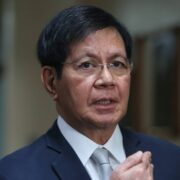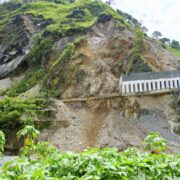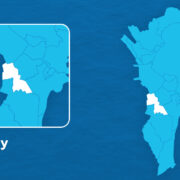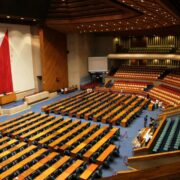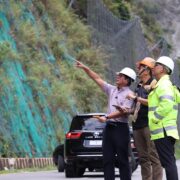Cha-cha not a shortcut
An exercise in futility, ill-timed, and an unnecessary distraction.
This was how many legislators and analysts viewed the latest attempt to tweak the 1987 Constitution, a move spearheaded by House Speaker Ferdinand Martin Romualdez, ostensibly to entice more big-ticket foreign investments.
“What could be our legacy in the 19th Congress is to review and revisit the 1987 Constitution to make it more attuned, sensitive, and responsive to the times,” explained Romualdez. His sentiment was shared by President Marcos, who said his “primary interest” in studying possible changes to the Constitution was to make the Philippines a more “investor-friendly” place.
Despite the laudable objectives, however, plans to do the Cha-cha or Charter change are not catching on. Even Mr. Marcos’ closest allies immediately registered strong opposition to these recent moves to amend the highest law of the land, with Senate President Juan Miguel Zubiri saying it was futile. Most of his colleagues in the Senate are also well aware that most Filipinos have consistently been opposed to Charter change because of suspicions of ulterior motives on the part of legislators. They also believe that the Marcos administration has more than enough tools that it can leverage to achieve the same objective of attracting more badly needed job-generating investments.
Other laudable reformsIn particular, Zubiri cited Republic Act No. 11659 which amended the Commonwealth-era Public Service Act. Signed by then President Rodrigo Duterte in March 2022, the law removed the 40-percent foreign ownership cap on businesses engaged in public services such as telecommunications, railways, airports, and expressways. The Duterte administration likewise passed the Corporate Recovery and Tax Incentives for Enterprises (CREATE) Act, the second package of the Comprehensive Tax Reform Program that reduced corporate income tax rates. Under the CREATE Act, the corporate income tax rate for covered companies was gradually reduced from 30 percent—the highest in the Association of Southeast Asian Nations (Asean)—to 25 percent, and further down to 20 percent by 2027 for foreign companies.
Other laudable reforms include the Retail Trade Liberalization Act that trimmed the minimum paid-up capital requirements and investment requirements for each store owned by a foreign enterprise. The full foreign ownership or participation in the exploration, development, and use of solar, wind, hydro, ocean, and tidal renewable energy sources is also now allowed.
Key structural reformsClearly, the government has already passed key structural reforms that have made the Philippines a far better place to invest in. Admittedly however, the country has to do more as it has been lagging behind its neighbors when it comes to bringing in investors. Indeed, the Philippines has a lot of catching up to do. The United States International Trade Administration (ITA) data showed that the Philippines ranked sixth out of 10 Asean economies on foreign direct investment inflows in 2020, and was the cellar dweller among the top five Asean economies—namely Indonesia, Malaysia, Singapore, Philippines, and Thailand—in terms of total FDI inflow from 2010-2020.
Congress can thus make better use of its time and public resources by addressing the deeper reasons why the Philippines has been bringing up the rear. Albay Rep. Edcel Lagman cited the Organization for Economic Cooperation and Development’s (OECD) findings on why foreign investors choose one country over another when it comes to plunking down capital resources. These include the ease of doing business; the elimination, or significant reduction, of official corruption; predictability of government policies; adequate and enabling infrastructure; faster and reliable internet speed, and cheaper cost of power.
Major disincentives to investmentsThe ITA enumerated as well the “major disincentives to investment” in the Philippines including poor infrastructure, high power costs, slow broadband connections, regulatory inconsistencies, and corruption. It added: “The Philippines’ complex, slow, and sometimes corrupt judicial system inhibits the timely and fair resolution of commercial disputes. Traffic in major cities and congestion in the ports remain barriers to doing business.”
As Lagman pointed out, the OECD’s findings “[do] not include the amendment of nationalistic constitutional provisions as an imperative inducement for the entry of foreign direct investments.”
Given the widespread opposition to Charter change, Mr. Marcos might do better to take his own advice and not make Cha-cha “a priority” since, as he has said in February, “there are so many other things that we need to do first.”
Indeed, the Marcos administration can help itself by not expending precious social capital on pushing Constitutional amendments through Congress. Instead, it should focus on urgent tasks that deserve more of its time, energy, and attention, from reining in inflation to solving the severe education crisis, boosting agricultural output, and lowering the country’s poverty rate.



